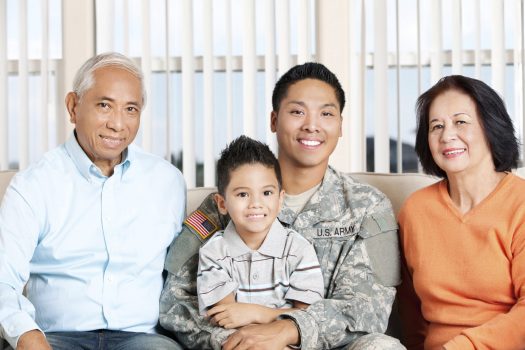Written by: Christopher Plein, Ph.D. West Virginia University
Military life is complex and ever changing. The challenges involved are increasingly being recognized across society and in the halls of government. Such issues as access to healthcare, education, child care, housing, and employment opportunities are vital to military family readiness.
These challenges and priorities have become more evident in annual National Defense Authorization Acts (NDAA) passed by Congress and signed into law by the President. In past blogs, we examined some major elements of the 2019 NDAA as they pertain to military family readiness and healthcare. The enactment of the 2020 National Defense Authorization Act provides the opportunity to update and review current developments in military family readiness. As discussed in a recent blog, these include further implementation of reforms in the TRICARE and Defense Health Agency (DHA) system.
Other provisions in the 2020 NDAA address matters of importance to families and caregivers. At over 1,100 pages, a close read of the 2020 NDAA would take some time. Fortunately, the U.S. Senate Armed Services committee has published a summary of the bill that provides a helpful overview. Here are highlights relating to child care, housing, spousal accommodations, and community capacity.
Child Care
According to the Senate summary, the act calls for a “comprehensive assessment of child care capacity” to address long-standing concerns about access and availability at military installations. Increased federal funds are to be made available to better coordinate and support local community educational services for children with special healthcare needs. The act calls for investments in building and improving child care development facilities at installations.
Housing
Adequate housing for military families has long been a concern. For those with family members with special needs conditions requiring accessibility and accommodation, these concerns may be especially acute. Provisions in the new NDAA call for a hard look at policies, programming and reforms to improve housing and empower military families. This includes improving the capability and capacity of installation housing offices to serve military families. There are also provisions to increase spending on building and enhancing base housing.
Spousal Accommodations
Caregiving is a shared commitment, and accommodations for dual income families are essential. The new NDAA is looking at further streamlining professional licensing reciprocity across the state lines to help accompanying spouses in the PCS process. Civilian DOD employees are now granted 12 weeks of parental leave.
Building Community Capacity
The new NDAA includes provisions to enhance infrastructure and facilities both inside and outside the gate. According to the Senate summary there is funding to work with state and local governments to address infrastructure needs adjacent to military installations. A priority has also been placed on emergency preparedness in the military. As we have discussed in a previous blog, the DOD is increasingly aware of the vulnerability of installations in the face of climate change and extreme weather events.
The Senate NDAA summary emphasizes and quotes the DOD saying that “You recruit a service member but retain a family.” Military family readiness is a team effort. Those who work with military families can benefit by staying up to date on policy and program developments under the NDAA and other legislation. For those matters relating to military caregiving, our OneOp Military Caregiving team will be giving close attention to these matters in the months to come. We will do our best to provide information on these and other developments through our blogs, webinars, and other activities.















